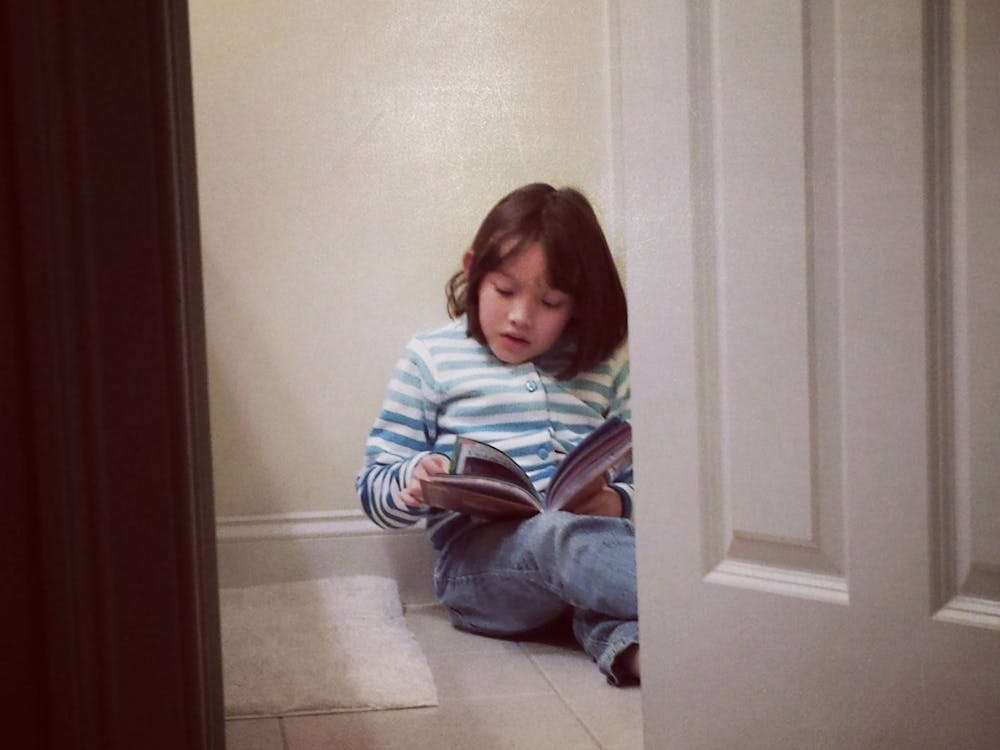What is it that makes people turn against their neighbors? What is justice? Can there be hope when there is nothing else?
These are just some of the many questions that were brought up last Wednesday in the facilitated discussion following a preview of Sarajevo Phoenix.
The production featured eight Hopkins students, who eloquently read the play in the John Astin Theatre on Wednesday, April 10th.
Sarajevo Phoenix, the collaborative brainchild of writer Ellen Kaplan and director Peg Denithorne (known as Professor Denithorne to some), is a play deeply rooted in the idea of “theatre of witness” —a form of theatre which allows survivors, or witnesses, provide accounts of civic trauma.
In many ways, the transference of these accounts into forms of artistic expression, such as theatre, becomes essential to the process of healing, as it creates an outlet for public grief.
Additionally, artistic representations of traumatic events provide an opportunity for stories outside of the traditional victor’s narrative to be incorporated into the larger conscious of the historical understanding of an event.
In the case of Sarajevo Phoenix, the narrative revolves around the trauma caused by horrific unrest in the Balkan region during the 1990s. During this time, the Republic of Yugoslavia began to disintegrate, pulled apart by various different ethnic and political factions within its borders.
While this period of time is often described rather simply as the Third Balkan War, in reality, this consisted of a vastly complicated series of interlocking wars.
At the heart of the violence was the city Sarajevo, the capital of both Bosnia and Herzegovina. A once highly diverse center of culture, Sarajevo became thoroughly battered throughout the duration of the war.
Between 1992 and 1995, Sarajevo was subjected to the longest siege of a capital city in the history of modern warfare.
Based on interviews that Kaplan and Denithorne conducted with a collective of women survivors, there is no doubt that Sarajevo Phoenix provides some horrific glimpses of what it must have been like to live in Sarajevo during the war. It was so horrific, in fact, that it seems like the women have been almost desensitized.
As the play opens, they are seen casually bantering over their sewing and tea. The ease they present however, has definite purpose. The audience is lulled into a sense of intimacy as they listen to the women recount their experiences in Sarajevo.
The women’s discussion fluctuates with ease, shifting through a variety of tones and topics, ranging from harsh recollections of snipers gunning down pedestrians to lighter, almost playful bantering about sexual encounters during the siege.
Not only do these well-positioned lighter moments serve to provide relief from what might otherwise be the overbearing tragedy of the stories, but they also serve to humanize the women, making them relatable to the audience.
This is important, as it is the authentic humanity of Sarajevo Phoenix which makes it so deeply moving.
Despite the monstrous violence of the time, the stories told in Sarajevo Phoenix do not victimize the women who tell them, but rather offer a perspective of strength and hope.
The women speak quite strongly against harboring feelings of hostility for any ethnicity or religion, nor do they feel that any of these groups should be faulted for the war. Instead, they speak of their differences as being the something that brings them together.
Be it Serbian, Croat, Bosnian, Christian or Muslim, they are all Sarajevan, an identity that cannot exist independent of the others.
While at first the play may have seemed potentially depressing, there is no doubt that the take-away message was that of hope.
This was augmented in part by the ending discussion, which was led by Michael Eleftherios, a conflict resolution expert who teaches at American University in Washington D.C. Eleftherios, who has worked extensively with conflict mediation in the Balkan region, took several questions before adding his own closing marks.
“When it comes to the point where you and I have to choose between hate and forgiveness,” Eleftherios said, “we can only choose forgiveness.”




